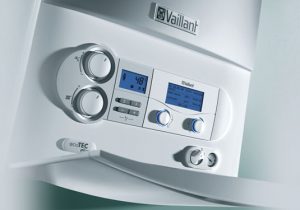 One of the toughest decisions you will have to make is what type of fuel to select for your boiler. There are several options to choose from. Therefore, you need to decide which is best for you. The following is information about the pros and cons of an electric boiler. It may help you to decide if you should go with this design.
One of the toughest decisions you will have to make is what type of fuel to select for your boiler. There are several options to choose from. Therefore, you need to decide which is best for you. The following is information about the pros and cons of an electric boiler. It may help you to decide if you should go with this design.
What is an electric boiler?
Firstly a little background. Certain boilers can use electricity to heat water and power the central heating systems. The electric comes from the mains to provide convenient, consistent supplies.
How do they work?
Generally, the boiler will have a large water tank attached to it. In the bottom, there will be a series of heating elements. When electricity passes through them they reach very high temperatures and the water is heated up. A pump will send this hot water to radiators and taps when it reaches the right temperature.
What are the pros?
There are several benefits to choosing this kind of boiler over other types of fuel. It is worth considering all of them.
Efficiency
The thing to remember with electric boilers is they don’t produce waste gas. That means there is no lost heat at all, resulting in better efficiency. Many models are 99% efficient, outperforming appliances powered by gas and biofuel.
Better for the environment
An added benefit of the lack of waste gas is the boilers are better for the environment. They don’t release any of this pollution at all.
Modern gas appliances now feature condensing technology to reuse the gas rather than waste it. Unfortunately, this produces a hazardous sludge that needs to be disposed of. Again, electric appliances don’t produce this.
Space-saving
Electric boilers don’t need a flue because there is no waste gas to expel. As a result, they can be placed in far more locations within a property. No fuel tank is needed either. As such, the units are generally smaller.
A good alternative
Not all properties have a gas connection. In these cases, electric boilers can be a great choice still allowing you to get the heat and hot water you want.
Cheaper installation
It is easier to hook up an electric boiler to the mains than it is to install a new gas line. Generally, all it takes is a little additional wiring. As a result, boiler installation is usually cheaper.
Safer
There are no concerns about gas leaks with electric boilers because they don’t use the fuel at all. Besides they don’t create carbon monoxide. This means your safety is more assured.
Easier maintenance
The only real maintenance you need to do on this kind of boiler is clean out the tank periodically. You need to do this to get rid of any debris brought in with the water. There is no burning so no residue to clean or concerns about pilot lights. This should also result in fewer boiler repairs.
What are the potential cons?
Although there are several benefits to consider, there are a few downsides. Again you should carefully weigh them up, particularly against the pros.
Electricity is more expensive
Everybody knows that gas is cheaper than electricity. As a result, the boilers running costs will be a little higher. Even a unit that is more efficient than its gas counterpart will come with slightly higher bills. You can find out more about the costs of installing electric boilers here.
 Less heat
Less heat
The major thing to keep in mind with electric boilers is they can’t generate as much heat as gas appliances. They are great for smaller homes but may struggle to effectively heat a larger property. It is wise to consider your heating needs and make sure the boiler you select can meet them.
Power cuts
Another issue is that a power cut will send your heating and hot water off too. If you live in an area where the loss of electricity is common, you will likely be better served with a gas boiler.
Weigh up all of the pros and cons of an electric boiler
As you can see, there are several things to consider. It is important to weigh the pros and cons of an electric boiler carefully before making your final decision. Think about short term upfront costs as well as ongoing maintenance and energy bills. Also, keep in mind the size of the property and how much you will need. Should you like to learn about the installation costs, you can click here for our helpful guide.
Call on Warm
If you need any additional help, warm.co.uk can put you in touch with an engineer. We compare hundreds of workers to bring you the best priced deals in your area.
Simply contact our team at 0800 311 8990. You can also make the most of our online quote form to make it as easy as possible to get help for your needs.


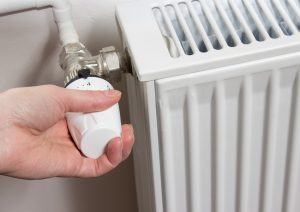 Less heat
Less heat
 But there are ways to save on heating costs without noticing too much of a difference. Try reducing your thermostat by just one degree, for example. It makes little difference to the way you’ll feel, but your heating bill could drop by about £40 a year or more.
But there are ways to save on heating costs without noticing too much of a difference. Try reducing your thermostat by just one degree, for example. It makes little difference to the way you’ll feel, but your heating bill could drop by about £40 a year or more.
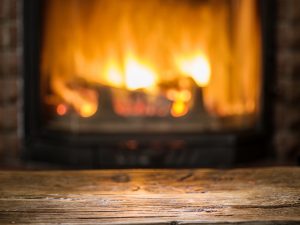
 Once you get used to an oil boiler, you should find it serves your needs well in the countryside – even if it does work differently to gas boilers you’d had in the past.
Once you get used to an oil boiler, you should find it serves your needs well in the countryside – even if it does work differently to gas boilers you’d had in the past.

 Lastly, ensure your central heating system is working correctly. Check that the radiators are heating up and if you think there could be an issue you with one or two not warming up properly, bleed all the radiators to remove any trapped air from inside the system.
Lastly, ensure your central heating system is working correctly. Check that the radiators are heating up and if you think there could be an issue you with one or two not warming up properly, bleed all the radiators to remove any trapped air from inside the system.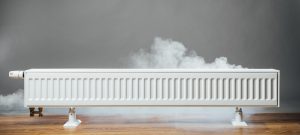
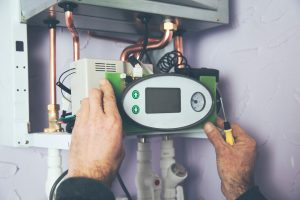 anyone to use gas appliances if they think it could be unsafe. So call the experts.
anyone to use gas appliances if they think it could be unsafe. So call the experts.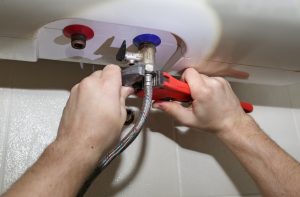 know what to expect. So, here is our guide to boiler installation.
know what to expect. So, here is our guide to boiler installation. Our Gas Safe registered engineer will start installation work on the date specified and on time. The time it takes depends on the system you have chosen and the work it entails but generally, a
Our Gas Safe registered engineer will start installation work on the date specified and on time. The time it takes depends on the system you have chosen and the work it entails but generally, a 

